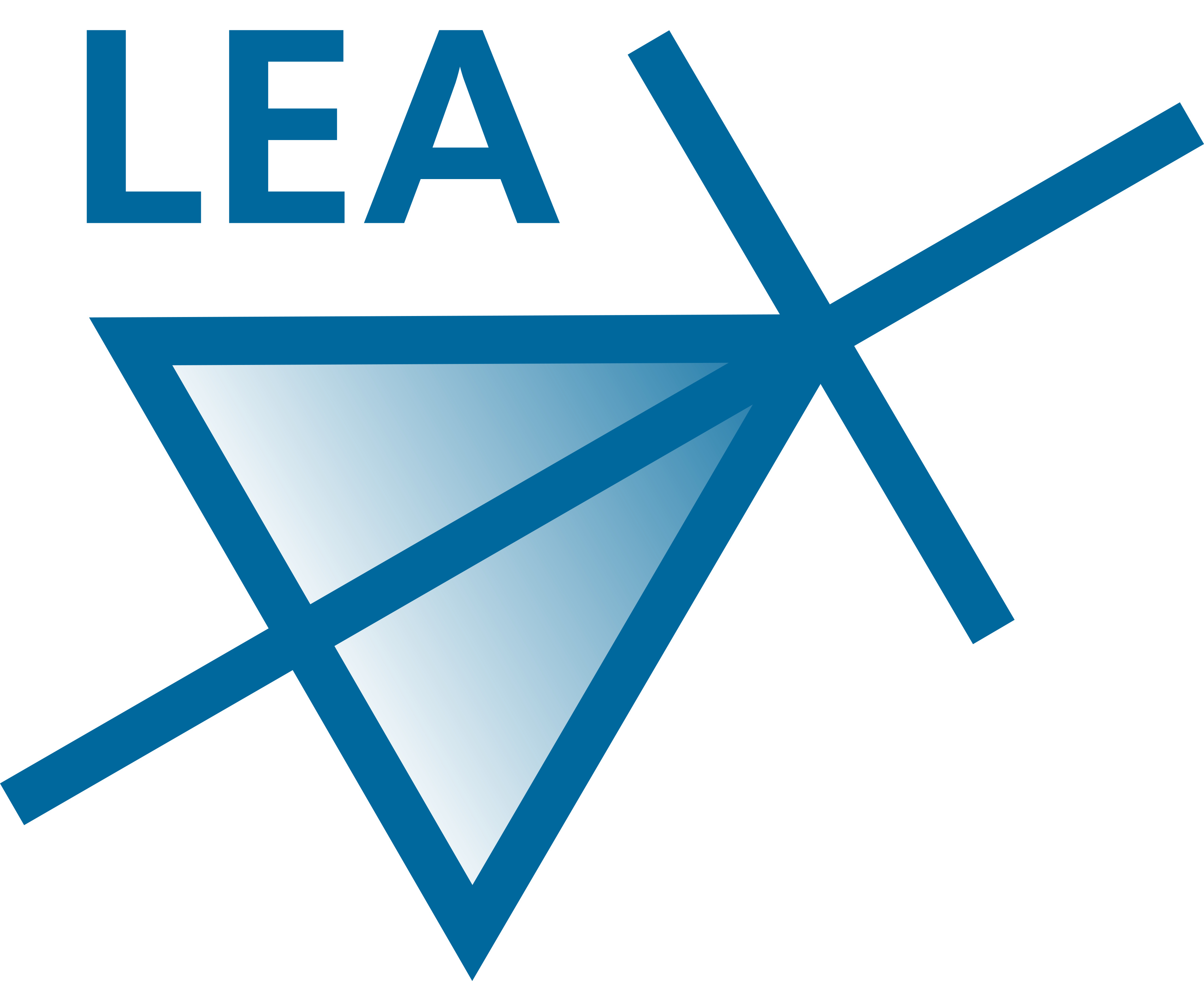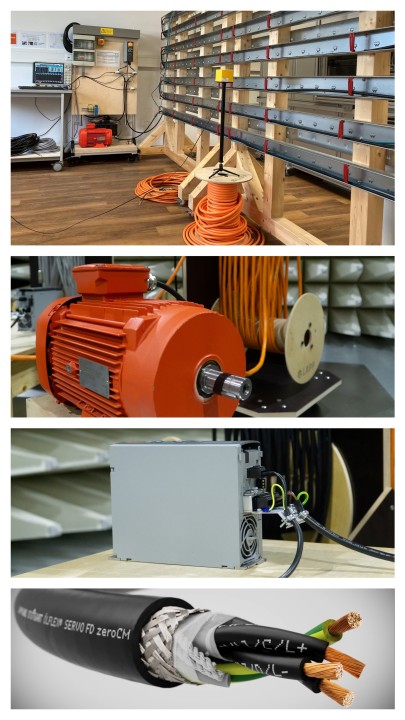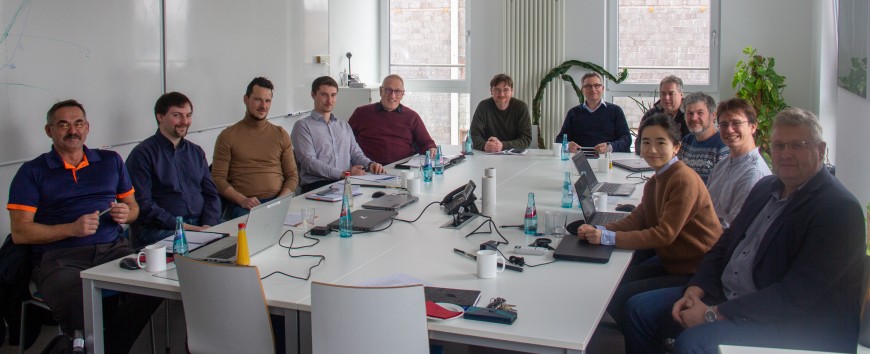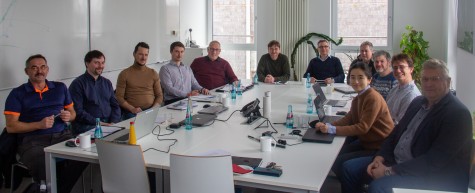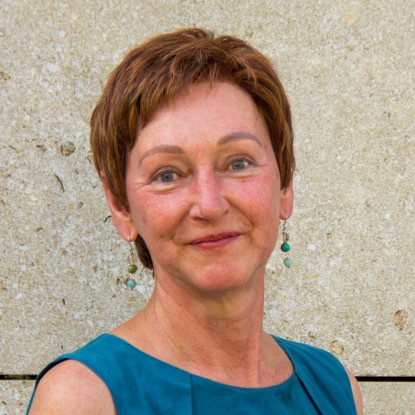Rationale, propagation paths and interference of protective earth and potential compensating current within power grids with a high fraction of power electronic systems (PEPA 1)
Reference no. 03EI6007
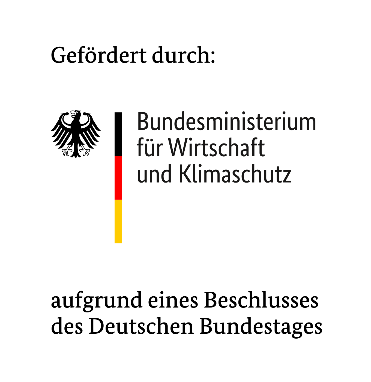
Power electronic systems generate common-mode voltages in the power supply network due to system conditions. These common-mode voltages cause currents in the frequency range of 150 Hz to several tens of kHz on protective conductors (PE conductors) and equipotential bonding conductors (PA). These PE/PA currents have many undesirable effects. The main goal of the PEPA project is to systematically describe the generation, propagation, and coupling of PE/PA currents through measurements and simulation methods, and to develop methods to influence and reduce them selectively.
Within this project, the issue of PE/PA currents has been comprehensively investigated for the first time. The causes of PE/PA currents, as well as their propagation and coupling paths in a drive system, have been systematically examined and understood. For this purpose, a reference system is defined based on measurements on real installations.
The measurement results are verified using a developed simulation environment. In the simulation environment, all relevant components such as power electronic systems including their filters, cables, electrical machines, transformers, etc., are modeled with respect to their common-mode behavior. This simulation environment also allows for predicting PE/PA currents when changing system parameters or employing alternative filter concepts. Improvements to filter circuits and the use of new magnetic materials have been investigated to suppress PE/PA currents. Furthermore, the acquired results have already been summarized and presented in the nomination committees K226 and K623.
Further documents for download can be found in the right column.
The following PEPA 2 project see the PEPA 2 page
Project partner
|
TU Darmstadt Lab for Power Electronics and Control of Drives (LEA) |
Prof. Gerd Griepentrog
Zhaoqing Zhang, M.Sc. Andrea Zingariello, M.Sc. |
| SEW Eurodrive GmbH & Co KG |
Michael Burger, Dipl.-Ing. michael.burger@sew-eurodrive.de Thomas Stork, Dipl.-Ing. thomas.stork@sew-eurodrive.de Benjamin Schuppel, M.Sc. benjamin.schuppel@sew-eurodrive.de |
| BLOCK Transformatoren Elektronik GmbH |
Dr.-Ing. Marek Siatkowski marek.siatkowski@block.eu |
| Danfoss |
Christian Mieslinger Christian.Mieslinger@danfoss.com Ralf Merwart ralf.merwart@danfoss.com Morten Andersen morten_andersen@danfoss.com |
|
MAGNETEC GmbH Gesellschaft für Magnet Technologie |
Benjamin Kessler Benjamin.Kessler@magnetec.de |
| U. I. LAPP GmbH |
Stefan Hilsenbeck, Dipl.-Ing. stefan.hilsenbeck@lapp.com |

